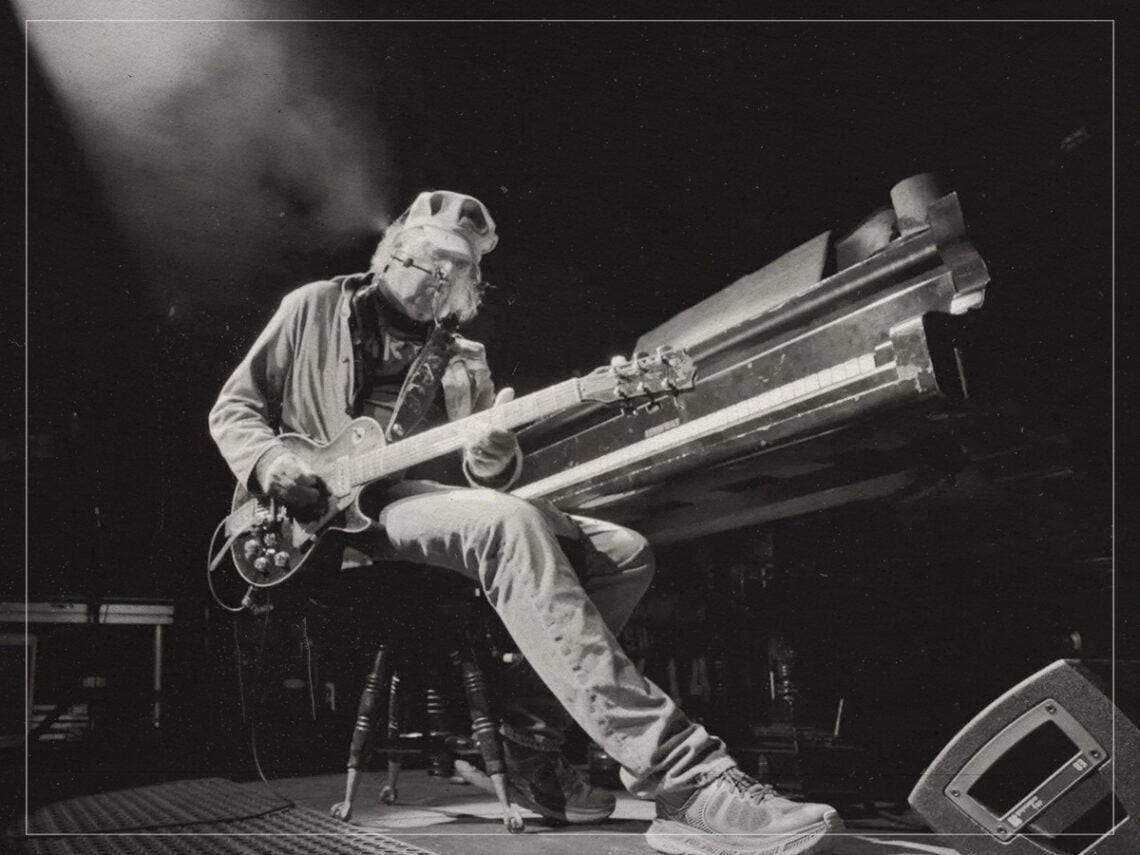
(Credits: Far Out / Daryl Hannah / Neil Young)
Sun 3 August 2025 0:23, UK
We’ve all had bad days at work, but very few of us have made such a critical blunder that it has resulted in a multi-million dollar lawsuit and a multitude of forever-ruined relationships.
Then again, most of us aren’t Neil Young.
Inarguably one of the defining songwriters of the 20th century, Neil Young is the man responsible for a string of utterly groundbreaking records. From the country vulnerability of Harvest Moon, to the hippie revolution of Buffalo Springfield, and the many tumultuous years he spent recording with Crosby, Stills, and Nash, the Canadian-born musician has proven his songwriting genius on numerous occasions, and his work has inspired multiple generations of musicians and writers in his wake.
Now that we have got that necessary praise out there, we can all accept that Neil Young’s expansive discography is far from being flawless. To his credit, he has never been one of those artists to stick rigidly to one avenue of inspiration, embracing everything from country to bizarre synth-pop efforts. Inevitably, though, many of his most experimental efforts have gone down like a lead balloon. While some of those records were judged far too harshly upon release, and are well worth revisiting, Young’s 1983 record Everybody’s Rockin’ does not fall into that category.
For the uninitiated, Everybody’s Rockin’ saw Neil Young abandon the electro-sound of his divisive previous effort, Trans, opting instead for a kitsch, nostalgia-soaked take on the retro sounds of rockabilly and early rock ‘n’ roll. The album is composed both of original efforts and cover versions, including ‘Mystery Train’, first popularised by Elvis Presley. Not only did these songs lack any kind of depth of intrigue, they marked a stark departure from anything Young had recorded prior. So, the prevailing question is, why?
Reportedly, Young had initially submitted a country-centric album, which was eventually released as Old Ways. Scarred by the reception of Trans, however, the folks at Geffen Records didn’t want Young to take any risks, demanding a straightforward rock and roll album instead. As the songwriter himself later recalled to PBS, “I thought in my mind, ‘Rock and roll, what the hell is rock and roll? Let’s go back in time to when rock and roll started and try to see what it is.’”
Everybody’s Rockin’ was the product of that exploration; a peculiar collection of retro rock efforts, strung together by Young’s strange newfound rockabilly persona. To this day, it still isn’t totally clear whether the songwriter genuinely believed in the project, or whether it was all some elaborate joke in defiance of Geffen and their demands for a rock album. However, the fact that the album was accompanied by an extensive and not very well-received tour tends to point towards the former.
Not only did the 1983 album mark the ultimate low point of Young’s discography, whether intentional or not, but it also resulted in a lawsuit against the songwriter. After the album flopped commercially, the label launched a lawsuit against Young, seeking $3.3 million due to the album being “musically uncharacteristic of [Young’s] previous recordings,” and attempting to make back some of the money the label lost on the project.
Ultimately, the lawsuit was unsuccessful. Young countered with a lawsuit of his own, seeking $21m for an apparent breach of his contract, which stated that Geffen would have no grounds to make creative decisions on the songwriter’s behalf. In the end, both were dropped, and the two parties managed to reconcile, but Everybody’s Rockin’ still remains as a reminder of that bizarre period in Young’s recording career.
Related Topics

